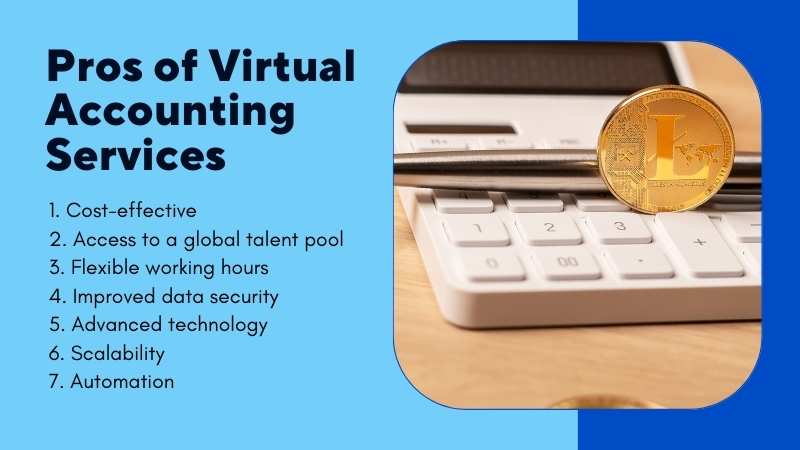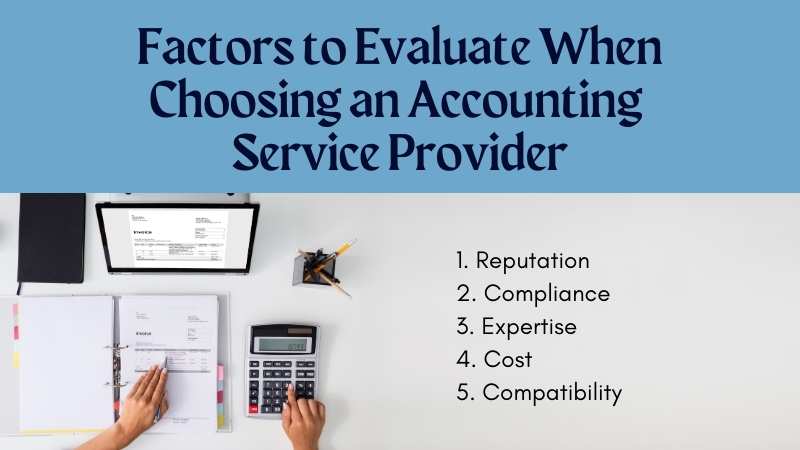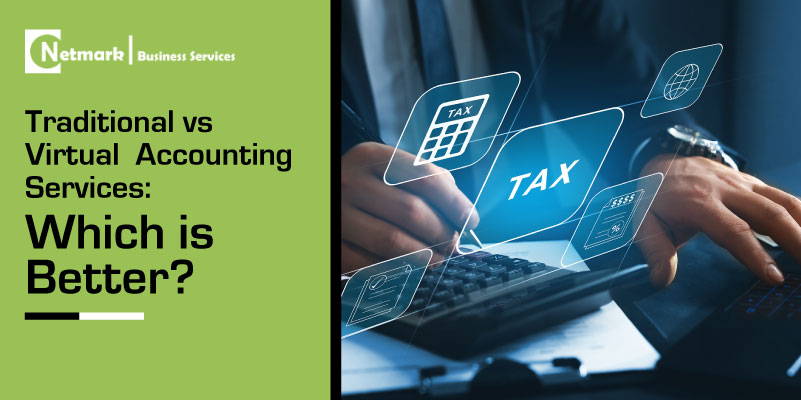As the business world has changed over the years, so are the services available to companies. In the past, accounting services were always done in person and an office setting.
Gone are the days when manual bookkeeping processes were used to perform the financial tasks required for organizations throughout the day or week. Many financial duties can be done remotely, making virtual bookkeeping services viable, easier, and more popular.
But how do they compare to traditional in-person services? When do you decide which approach is better suited for your business?
That is why we will explore the distinctions between virtual accounting and traditional processes so you can decide what approach will benefit your organization most effectively in the long term.
Let us break it down.
Traditional Accounting Services
Traditional accounting has existed for ages and is more than adequate for most businesses. Traditional accounting involves setting up an accounting department in-house or hiring the services of a professional accountant to discuss your finances, set up financial systems, and review financial goals.
Accountants or CPAs can advise on tax laws and regulations while helping you ensure that your books are balanced and accurate. Additionally, traditional accounting firms offer assistance with audits, payroll management, budgeting, forecasting, and other related tasks.
Pros of Traditional Accounting Services
1. Familiarity
Traditional accounting services are tried, tested, and familiar to CPAs and accountants who have been in the business for a while. This means less time is required to train new staff, which is essential now that technology is progressing rapidly.
2. Security
Traditional methods focus heavily on paper documentation and keeping everything secure and private. This can provide peace of mind for businesses that handle sensitive information, such as financial data.
Cons of Traditional Accounting Services
1. Quality of Information
Traditional methods rely heavily on manual data entry, which can increase the likelihood of errors in bookkeeping. This can lead to incorrect financial information, which can be costly and could lead to penalties from regulatory authorities.
2. Time-consuming
Traditional methods can be prolonged, especially compared to modern accounting software. Tasks that should only take minutes can take hours or even days with conventional accounting methods.
3. Cost
Large transactions will involve deploying large numbers of workforce that will increase costs. All such manual bookkeeping entries will involve laborious and time-consuming verification and audit, increasing costs.
Virtual Accounting Services
Virtual accounting is an increasingly popular alternative to traditional services due to its cost savings and convenience. Virtual accounting typically uses software like QuickBooks or Xero to streamline processes like invoicing, bookkeeping, tax preparation, payroll processing, etc., allowing companies to save time and money.
Additionally, virtual accounting service providers can often provide their services remotely, making them much more accessible than traditional accountants who require face-to-face meetings. This allows companies to access their accounts anywhere without traveling or taking time off.
Pros of Virtual Accounting Services

1. Cost-effective
For seeking to maintain a low budget, Virtual accounting services provide an affordable solution. With remote work, they do not include office rent, utilities, and other overheads, which can make the business more profitable. , virtual accounting is a more cost-effective solution.
2. Access to a global talent pool
Virtual accounting services provide businesses with access to a worldwide talent pool. This allows firms to hire the best talent worldwide, regardless of location.
3. Flexible working hours
Virtual accounting services provide the flexibility of working from anywhere, anytime. Virtual accounting service providers can work with clients in different time zones and offer round-the-clock services.
4. Improved data security
Virtual accounting services use the latest technology and software to secure client data. This lowers the risk of data violations and cyber-attacks.
5. Advanced technology
Virtual accounting service providers use advanced software and tools to help with bookkeeping, accounting, budgeting, forecasting, and other related tasks. This can help businesses stay informed about industry trends and keep their finances in check.
6. Scalability
Virtual accounting services can be scaled up or down to accommodate the needs of businesses, which is especially useful for firms with fluctuating cash flow.
7. Automation
Virtual accounting services can automate mundane tasks to help businesses save time and money. This also reduces the risk of errors, allowing companies to focus on more critical areas.
Virtual accounting services offer companies many advantages in managing their finances efficiently and accurately. Businesses need to weigh their options and determine which services suit their needs. By working with a competent virtual accounting service provider, they can take advantage of all the benefits virtual accounting offers. This allows businesses to focus on growth and expansion without worrying about the accounting processes.
Cons of Virtual Accounting Services
1. Lack of face-to-face communication
One of the significant drawbacks of virtual accounting services is the absence of face-to-face communication. This can lead to miscommunication and misunderstandings between clients and the organization.
2. Dependence on technology
Virtual accounting services depend heavily on technology. This makes businesses vulnerable to technical issues and system failures that disrupt workflow.
3. Cultural differences
Firms that work with clients from different cultures face challenges, such as language barriers and cultural differences that can impact communication and workflow.
4. Trust issues
Some clients may have trust issues with virtual accounting services due to the need for face-to-face communication. The firm must establish trust with its clients through excellent communication, quality work, and reliable service.
Factors to Evaluate When Choosing a Service Provider

As an organization, you need to work with various service providers that can help make your operations more efficient and effective. The right service provider can help you save time, money, and resources, while the wrong one can do the opposite. With so many choices, picking the right one for your demands can be challenging. Let us discuss some factors you should consider when selecting a service provider for your business.
1. Reputation
One of the most critical factors when choosing a service provider is their reputation. Do your research and find out what others say about the provider you are considering.
Look for reviews, testimonials, and case studies to understand better their track record, customer service, and overall satisfaction. Additionally, check for any awards or recognition the service provider has received, which can indicate their expertise and quality.
2. Compliance
Compliance is another crucial factor when choosing a service provider. Depending on the nature of the service, the provider may need to adhere to specific regulatory requirements, such as data privacy, security, or licensing.
Ensure that the provider is compliant with all relevant regulations and can provide you with the necessary documentation to support their compliance.
3. Expertise
Every service provider has a particular area of expertise in which they excel. When choosing a service provider for your organization, look for providers with experience working with similar businesses or professions.
Ask for references or testimonials from other firms that have worked with the provider to gauge their level of expertise in the field.
4. Cost
Cost is another critical factor when choosing a service provider. While you do not want to skimp on quality, you also want to avoid overpaying for services you do not need. Understand the provider’s pricing structure, ensure it aligns with your budget, and provide value for the fee incurred.
Additionally, ask about any hidden costs or fees that may arise down the road, such as upgrades, maintenance, or support.
5. Compatibility
Compatibility is crucial when choosing a service provider. You want to work with a partner you can trust and rely on for years. Look for service providers that share similar values, goals, and cultures.
Ensure that the provider is responsive and communicative and that they are available to provide support when needed. Consider conducting a trial period or pilot project to test the compatibility and gauge the provider’s performance.
How to Find a Reliable Virtual Accounting Service Provider for Your Business
Ensuring your client’s financial records are well-maintained and up-to-date is paramount for a flourishing business. However, handling all the accounting tasks can become challenging with an increasing workload.
This is where virtual accounting service providers come in.
These service providers can ease the workload by offering cost-effective and efficient online accounting services that improve the quality of work. However, not all accounting service providers are created equal, and choosing a reliable one is critical. Check below the essential aspects before choosing a virtual accounting service provider.
1. Consider their experience and expertise
When looking for a virtual accounting service provider, look for experience and expertise. The service provider should have qualified and experienced accountants who specialize in the accounting your firm requires.
For instance, if your firm requires bookkeeping services, ensure the service provider has a team of bookkeepers with relevant experience. Request referrals from other businesses that have sought their accounting services before to ensure that they are established and have a good reputation in the industry.
2. Check their technological capabilities
Technology has revolutionized how businesses operate, and evaluating your potential virtual accounting service provider’s technological abilities is imperative. It is essential to check if their technology is up-to-date and if they use the latest accounting software.
Additionally, ensure that their software can integrate with other internal software you use to make the accounting process more streamlined.
3. Look for security measures
Data security is one of the most significant challenges in online accounting, considering the confidential nature of financial records. Looking for virtual accounting service providers with secure and robust data privacy measures is crucial.
These measures include data encryption, backup and recovery plans, and secure servers. You can also ask the potential service provider about these measures to ensure they meet your business’s requirements and industry standards.
4. Evaluate their communication and customer support
Communication is crucial when it comes to online accounting services. You must check if the virtual accounting service provider offers excellent customer support and communication channels like email, chat, and phone support.
Additionally, ensure that their response times are reasonable and that their team will provide adequate information if an issue arises. Furthermore, the service provider should also offer proactive updates on your financial records to ensure transparency and accountability.
5. Check their pricing
Finally, it is essential to consider the cost of the virtual accounting service provider. While it might be tempting to select the cheapest option, it is vital to evaluate what you will get for your money.
Some accounting service providers might offer low prices but need more experience and expertise, making them unreliable. Therefore, consider your business’s accounting needs, the cost of the service, and the potential cost savings before choosing a partner.
Conclusion
Choosing the right virtual accounting service provider can be an overwhelming experience. However, by considering the essential factors mentioned above, you can narrow down your search and find a reliable partner that will meet your accounting needs to transform your accounting operations while maintaining high-quality standards.
Netmark Business Services offer reliable virtual accounting services. We have experienced professionals specializing in all aspects of accounting, from bookkeeping to tax preparation. We also comply with the latest security measures and use up-to-date technology for better accuracy and efficiency. Netmark is a SOC II, Type 2 certified company.
Contact us today for more details about our services. We look forward to helping you with your accounting needs.







